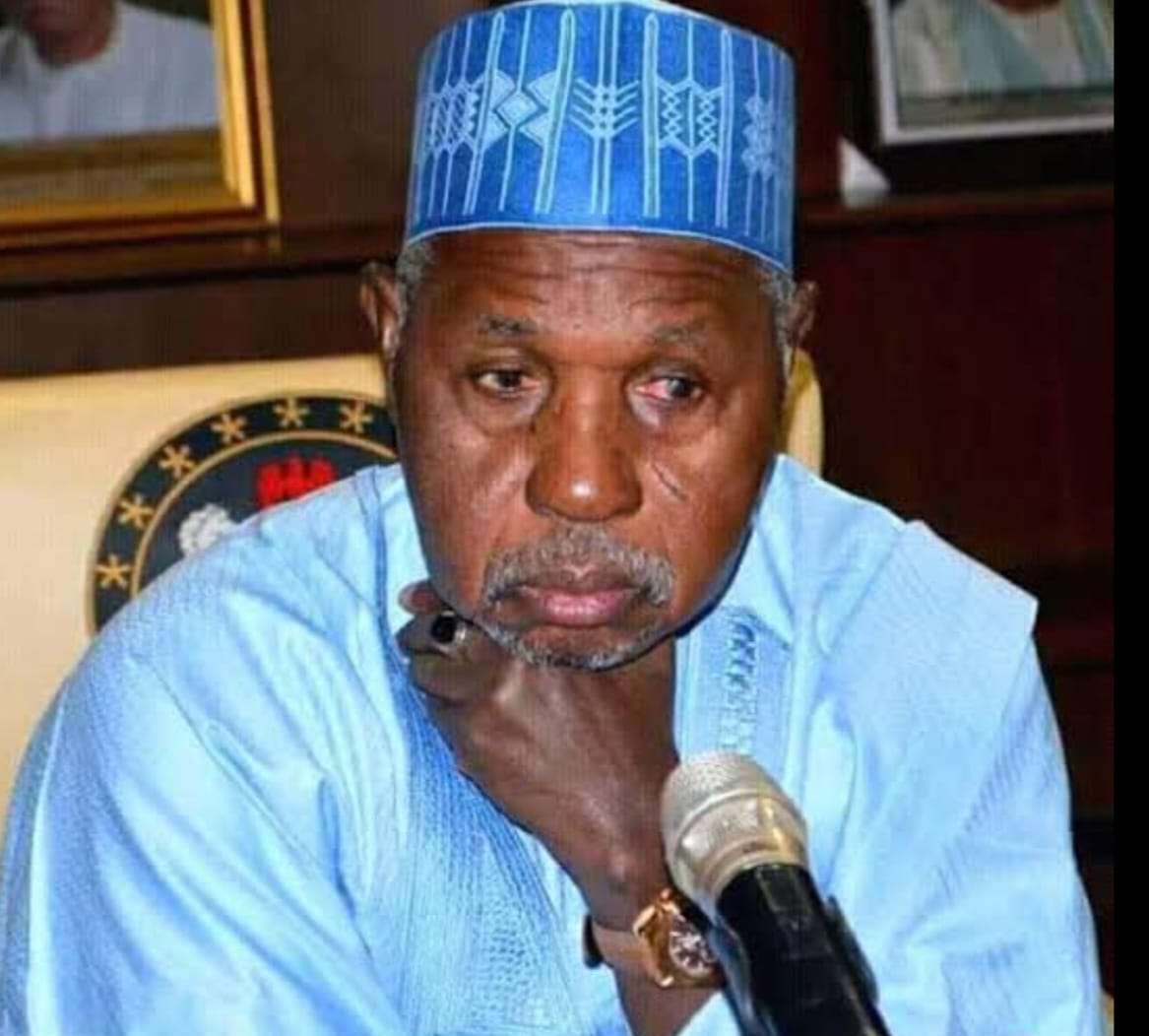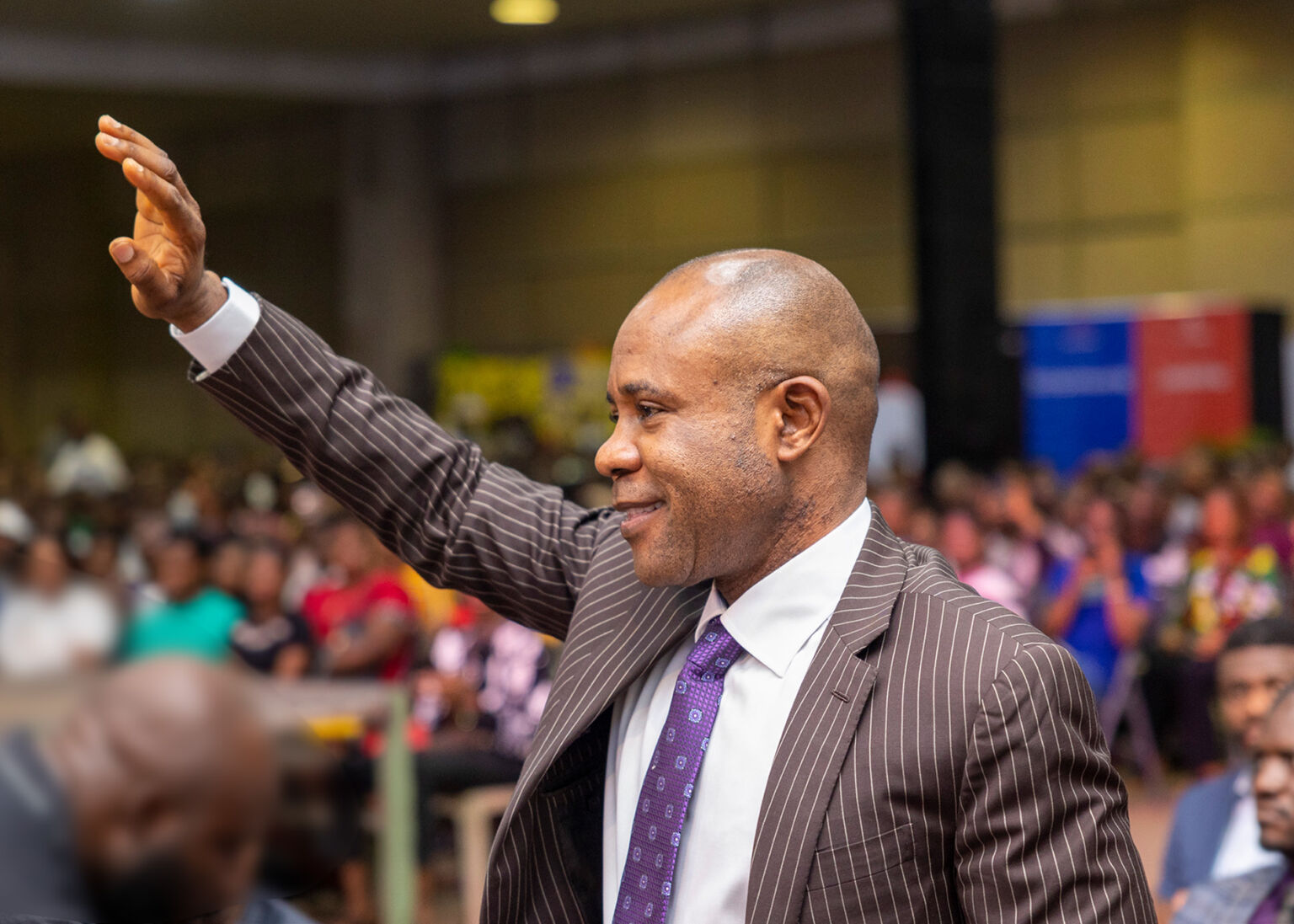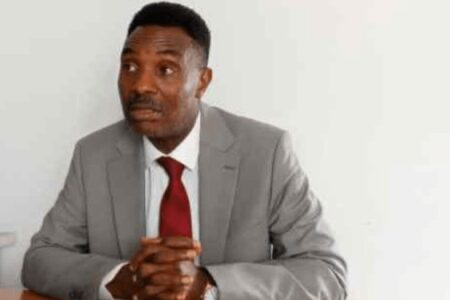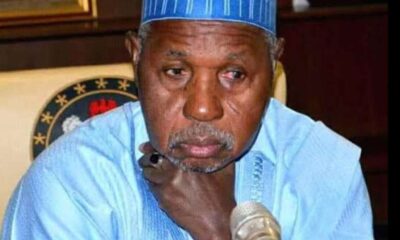
News
Alleged N110 billion fraud: Ex-Kogi accountant made 64 withdrawals in six days – Banker testifies

The trial of the immediate past Kogi State governor, Yahaya Bello, resumed at the Federal Capital Territory High Court, Maitama, Abuja, on Wednesday, with the third prosecution witness testifying that N640 million was withdrawn from the Kogi State Government House account in 64 tranches of N10m within six days.
The witness, Ms. Abimbola Williams, a bank’s Compliance Officer, told the court that the withdrawals were made through 64 cheque transactions of N10m each by the former Chief Accountant at the Kogi Government House, Abdulsalami Hudu, between July 31 and August 6, 2019.
Bello, Hudu, and the Director-General of the Kogi Government House Administration, Shaibu Oricha, are being prosecuted by the Economic and Financial Crimes Commission before Justice Maryanne Anenih for alleged fraud involving N110.4bn.
Led in evidence by EFCC counsel, Kemi Pinheiro (SAN), Williams confirmed a series of withdrawals linked to Hudu.
“Between July 31 and August 6, 2019, the total amount of cash withdrawn in six days by the third defendant was 64 transactions of N10m each, amounting to N640m,” she said.
During cross-examination by the defence counsel, Joseph Daudu (SAN), the witness confirmed that she had previously testified in a related matter at the Federal High Court in Abuja.

She clarified that although she served as the bank’s Compliance Officer, she was not the Relationship Manager or Account Officer handling the daily operations of the account.
Williams told the court that customers were free to withdraw any amount as long as proper mandates were followed.
“As a Compliance Officer, I am allowed to work in any branch,” she added, noting that she reported for duty that morning at her bank’s branch on Adetokunbo Ademola Street, Wuse 2, Abuja.
Responding to further questions, the witness explained that while the bank requires customers to state the purpose of high-value transfers, it does not make such enquiries for cash withdrawals.
She also emphasised that the bank did not breach any financial regulations in allowing the transactions.
She listed the authorised signatories on the Kogi Government House account as of 2004 as Christopher Enefola (Permanent Secretary), Onekutu Daniel (Chief Accountant), and Abdulsalami Hudu (Accountant), and later, in 2008, Elder P.S. Ocheni, Abbas Ibrahim Abubakar, and Hudu.
Under cross-examination by counsel for the third defendant, A.M. Aliyu, Williams confirmed seeing a credit entry described as “Governor’s Security Fund” in the bank statement.
When asked whether the withdrawn funds were used for security purposes, she replied, “My Lord, I am not privy to the details of the transaction and cannot categorically answer that question.”
After Williams’ testimony, the EFCC called its fourth subpoenaed witness, Jesutoni Akoni, a Compliance Officer with another bank.
Akoni tendered a 13-page document detailing cash deposits into a Kogi Government account, including N3m by Moses Wanzu, N15m by Abdulwahab Sabo, and N20m by Shehu Bello — totalling about N57m.
However, Aliyu objected to the admissibility of the document, arguing that it did not comply with the provisions of the Evidence Act.
Under cross-examination, Akoni said she did not know the defendants personally or the source and purpose of the funds.
The prosecution later called its fifth witness, another banker identified as Mrs. Victoria Oluwafemi.
Earlier, Daudu informed the court of a pending application challenging the court’s jurisdiction and urged Justice Anenih to take the motion before continuing with witness examination.
“We urge Your Lordship to give us a date so we can address the issue of jurisdiction,” he said.
But Pinheiro opposed the request, insisting the application was not ripe for hearing. “We’ve been in court for over a year, and now they are raising jurisdiction. The matter can wait until November 12,” he argued.
The court subsequently adjourned the matter to October 9, 2025, for continuation of trial.
News
Ex-Speaker, Aminu Masari, lists four conditions to bridge gap between campaign promises and realities

The former Speaker of the House of Representatives and former Governor of Katsina State, Rt. Hon. Aminu Bello Masari has lamented the yawning gap between campaign promises by politicians and realities of governance on the ground.
Delivering the Keynote Address at the 9th Annual Conference of the Guild of Corporate Online Publishers (GOCOP) in Lagos, Masari, who spoke on the theme: Reconciling Campaign Promises with Governance Realities: Challenges and Prospects, listed four conditions to bridge such gaps in the interest of democracy.
To Masari, political actors must campaign with responsibility, insisting that such campaign promises should be realistic, costed and achievable within the available resources.
“Unrealistic pledges made merely to capture the mood of the electorate should be challenged and exposed. Only then can we begin to elevate our political culture and make sure that the process justifies the end. Second, governance must be anchored on strong institutions. With capable institutions, policies can be implemented more consistently and transparently.”
According to him, the third leg must imbibe honest communication with citizens by political leaders. He tasked leaders to explain the trade-offs — why certain promises may take longer, why resources must be reallocated and how progress will be measured.
“Fourth, citizens themselves, including civil society and the media, must understand realities and properly communicate those realities in addition to holding leaders accountable. They should track promises, and demand transparency instead of creating sensational headlines to attract followers, especially now that the number of followers translates into monetary gain.”

Looking at the challenges before political leaders in fulfilling campaign promises, the former Katsina State governor named limited resources, competing demands and unexpected crises.
“Many manifestos are aspirational documents, not grounded in the reality of available resources or institutional capacity. Fiscal constraints are also a big factor. Campaign promises hinge on the resources available to any country. In many African nations — and more specifically in our case — budgets are still heavily dependent on a single commodity: oil. Yet, as we all know, the price of oil is beyond our control. It is volatile, shaped by global market forces, geopolitical tensions, and other complex and unpredictable factors.”
He said beyond resource volatility, there are also unforeseen emergencies that force governments to reorder their priorities with COVID-19 as a vivid example. He said such emergencies consume time, energy and resources and compel governments to suspend plans and promises across all sectors, resulting in campaign promises suffering in the long run.
“Here in Nigeria, insecurity remains a persistent challenge. It undermines production, disrupts livelihoods and reduces national revenues. It compels government to divert enormous resources toward security operations. Another major issue is weak institutions. Even when funds are available, corruption, bureaucracy and inefficiency can derail delivery.”
He concluded that reconciling campaign promises with governance realities is not just about avoiding embarrassment for politicians but about protecting the integrity of democracy itself.
The keynote speaker warned that if citizens repeatedly see promises made and broken, they lose faith in the system.
“But if they see even modest progress explained honestly and delivered consistently, they will continue to believe in the promise of democracy. Let our promises be realistic, our expectations be modest, our governance transparent and our accountability strong. In doing so, we can transform hope into progress, and democracy into a vehicle of real change.”
He commended the EXCO and members of GOCOP on its 9th anniversary and consistently creating platforms for the people to have honest conversations about the future of our democracy.
“This is where journalism at its best, and more specifically GOCOP in this digital age, becomes indispensable. You and your profession are the bridges between the leaders and the people. You shape narratives, hold leaders accountable and track progress.”
News
Enugu Gov, Exco, Lawmakers defect to APC Tuesday

The governor of Enugu State, Peter Mbah, has dumped the Peoples Democratic Party (PDP) for the All Progressives Congress (APC).
This was confirmed by the Enugu APC Caretaker Chairman, Dr Ben Nwoye, while speaking to journalists on Friday.
According to him, Mbah will officially defect to the ruling party on Tuesday, October 14, 2025, in Enugu, alongside federal and state lawmakers, the state executive council members, and ward and local government leaders across Enugu State.
The APC National Working Committee (NWC) on Thursday dissolved the Enugu State Working Committee (SWC) over unresolved differences, appointing a seven-member caretaker committee to oversee the affairs of the party.
The wave of defections from opposition parties to the All Progressives Congress (APC) has continued to grow.
A few months ago, Akwa Ibom State Governor Umo Eno and his Delta State counterpart, Sheriff Oborevwori, both left the Peoples Democratic Party (PDP) to join the APC.

During the defection ceremonies held in Uyo and Asaba, the former APC National Chairman, Dr. Abdullahi Ganduje, revealed that more opposition governors and top party leaders were preparing to cross over to the ruling party.
On October 8, Kelvin Chukwu, the Senator representing Enugu East, also announced his defection from the Labour Party (LP) to the APC.
His move raised the number of APC senators to 73, giving the party a two-thirds majority in the 109-member Senate — a threshold that allows it to easily pass major decisions and legislation.
At the moment, the Senate’s composition stands as follows: APC, 73 senators; PDP, 28; LP, four; All Progressives Grand Alliance (APGA), two; and one each from the Social Democratic Party (SDP) and the New Nigeria Peoples Party (NNPP).
News
Ben Nwoye returns as Enugu APC Chairman after dissolution of Agballah-led exco

• Ex-Speaker Odoh appointed Secretary
The All Progressives Congress, APC, has dissolved the Enugu State working Committee of the party.
This is preparatory to the detection of Governor Peter Mbah to the ruling party.
The dissolution of the former party executive led by Ugochukwu Agballah came barely 2 days after the Minister of Innovation, Science and Technology, Uche Nnaji resigned over alleged certificate forgery.
Nnaji is an ally of Agballah, the now ex-chairman of APC in Enugu State.
Agballah and Nnaji had seriously opposed Mbah’s defection to the party.
However, Nwoye and other foundation members of the APC insisted that the governor is gladly welcome to the party.

Rising from its 179th meeting in Abuja on Thursday, the APC National Working Committee, NWC, dissolved the Agballah-led SWC with immediate effect.
In its place, former chairman of the party in the state, Barr Ben Nwoye is now the new helmsman of the party in the state.
A former Speaker of the Enugu State House of Assembly, Barr Eugene Odo is the Secretary of the 7-man caretaker committee.
Resolution taken during the meeting was signed by Hon. Durosinmi Meseko, Deputy National Publicity Secretary of the APC.
It reads in parts:
The National Working Committee (NWC) of the All Progressives Congress (APC) held its 179th meeting at the Party’s National Secretariat, Abuja, on Thursday, 9th October, 2025, presided over by the National Chairman, Prof. Nentawe Goshwe Yilwatda.
“At the conclusion of the meeting, the following resolutions were reached:
1. Dissolution of Enugu State Executive Committee and Appointment of Caretaker Committee
The NWC approved the dissolution of the APC Enugu State Executive Committee with immediate effect, following a comprehensive review of the state of the Party in Enugu State.
Consequently, a seven (7) member Caretaker Committee has been constituted to oversee the affairs of the Party in the State.
The Committee, which will be inaugurated on Friday, 10th October, 2025, at 10:00 a.m. at the Party’s National Secretariat in Abuja, is composed as follows:
Dr. Ben Nwoye – Chairman
H.E. Mrs. Fidelia Njeze – Member
Comrade Peter Chime – Member
Dr. (Mrs.) Oby Ajih Member
Dr. Chiedozie Nwafor – Member
Engr. Emma Ekeh – Member
Rt. Hon. Eugene Odoh – Secretary
Details of the APC resolution:


-

 News1 day ago
News1 day agoBREAKING: Tinubu grants 175 persons presidential pardon
-

 News2 days ago
News2 days agoAtiku backs Sowore-led protest, demands immediate release of Nnamdi Kanu
-

 News3 days ago
News3 days agoWhy I resigned, Nnaji explains, denies wrongdoing
-

 News1 day ago
News1 day agoCertificate Scandal: CASER asks Enugu Attorney General to prosecute Ex-minister Nnaji
-

 News3 days ago
News3 days agoCooking Gas: Scarcity, price hike artificial, middlemen exploiting customers — NALPGAM
-

 News2 days ago
News2 days agoRMRDC targets 30% Value Addition Policy on Export of Local Raw Materials
-

 News2 days ago
News2 days agoPresidency rejects World Bank report claiming 139 million Nigerians live in poverty
-

 News1 day ago
News1 day agoTinubu nominates Kogi’s Prof. Amupitan as INEC chairman

























